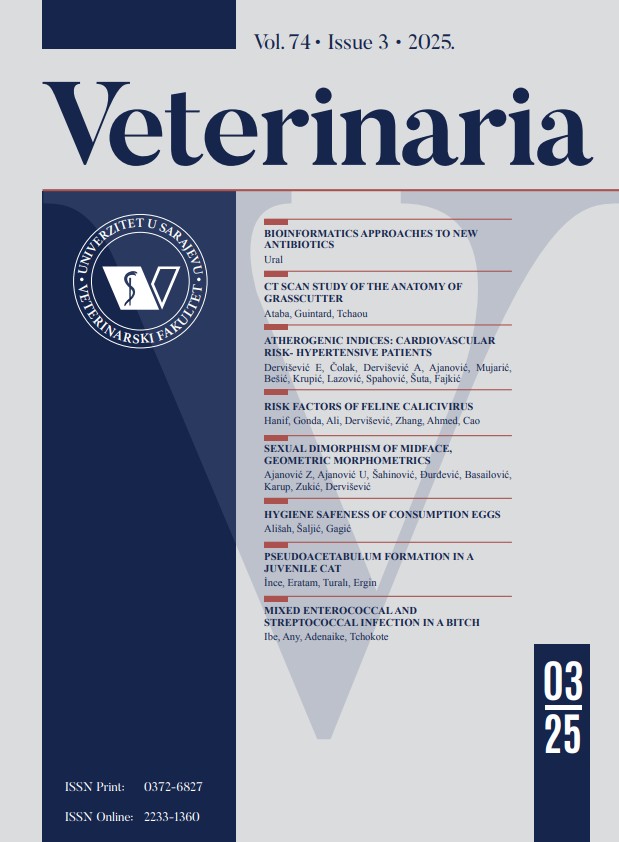Antifungal activity of propolis originated from Bosnia and Herzegovina
Keywords:
propolis, antifungal activity, Candida albicans, Ascosphaera apisAbstract
Propolis is a resinous substance made by the bees that collect resin from the buds of plants and exudates of trees, enriching it with the salivary enzymes, pollen and wax. Beside of biological activities, propolis also has an antifungal activity. Candida albicans is a commensal yeast that may cause candidiasis in humans and animals, too. Ascosphaera apis is a heterothalic fungus and represents an agent of chalkbrood larval disease (cystic mycosis) of honeybees, Apis mellifera. Propolis from Bosnia and Herzegovina has shown an inhibitory effect on C. albicans and A. apis. 30% concentration of ethanol extracts of propolis has shown the strongest average inhibition zone with the disc diffusion method, with inhibition diameter of 7.56 mm for C. albicans and 14.5 mm for A. apis, as well as 8 mm for the reference strain of C. albicans ATCC 10231 and 12,2 mm for the reference strain of A. apis MUCL 30764.
References
Downloads
Published
Issue
Section
License
Copyright (c) 2020 Senka Babić, Šemso Pašić, Behija Dukić, Agnesa Ćoralić

This work is licensed under a Creative Commons Attribution 4.0 International License.







